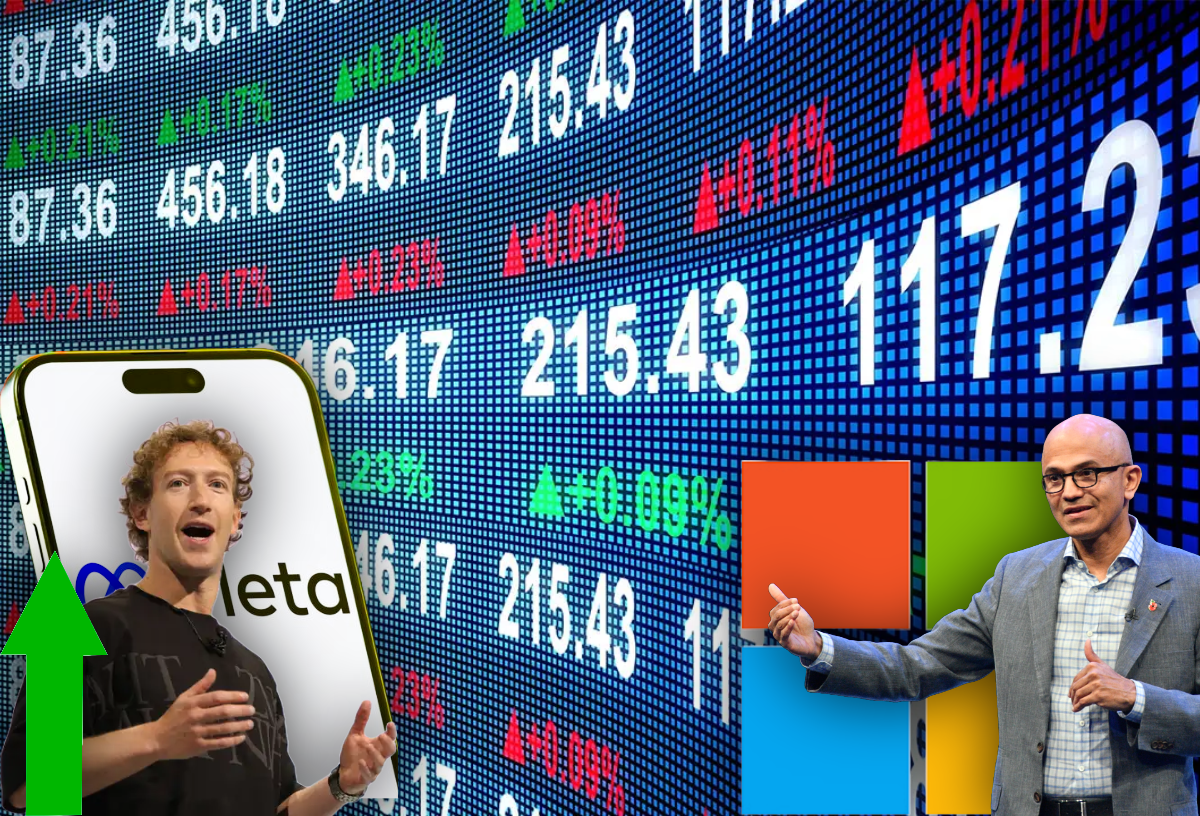
On the final day of Q2, Microsoft and Meta crushed Wall Street's high expectations of Big tech with standout second-quarter earnings, triggering heavy surges across US stocks, stock futures and indexes.




Meta’s stock (NASDAQ: META) soared approximately 11% in pre-market trading, while Microsoft (NASDAQ: MSFT) surged over 9%, pushing its market cap tantalisingly close to $4 trillion and placing it ahead of both Apple and Amazon after the bell. The rally was largely fuelled by stronger-than-expected earnings reports from both companies and bold commitments to AI investment.
Both tech giants released their Q2 earnings on Thursday, 31st July, sending US tech futures higher. Microsoft reached a record $4 trillion market capitalisation, while Meta exceeded both its second-quarter estimates and forward-looking outlooks. CEO Mark Zuckerberg emphasised that Meta's robust advertising engine continues to fund its AI ambitions, noting that the company can confidently reinvest profits dynamically-efficiently from its core business. Meta’s CapEx spending is projected to reach upwards of $72 billion in 2025, primarily targeted towards AI infrastructure.
Meta reported an earnings growth of 38%, accelerating from 36% in the previous quarter. This performance signals that Meta’s AI investments are now translating into tangible financial results. For some time, Meta faced scepticism from investors over its spending – particularly on projects like the Metaverse – where payoffs were not immediately visible. But this quarter marked a turning point in how Meta’s long-term bets are being perceived. The numbers now validate the strategy, leading analysts to reassess the value of Meta’s AI investments and their impact on future growth.
Meanwhile, Microsoft’s late-July success was driven in part by its Azure cloud division, which posted an impressive 39% increase in sales during the company’s fiscal fourth quarter. This beat analyst expectations by a wide margin. Microsoft also announced plans to invest $30 billion into building data centres to support the seamless delivery of its AI services. That commitment has boosted investor confidence significantly. Microsoft grew earnings by 23% year-on-year, its strongest growth in over five quarters, reinforcing its leadership in enterprise AI.




The rallied momentum generated by Meta and Microsoft has had a ripple effect across the broader market. The US stock futures rally following the 30th July record closings was unlike recent record highs, which typically saw staggered day-by-day follow-through. This time, the strength of Meta and Microsoft’s earnings triggered an immediate and substantial reaction. Tech-heavy indices like the NASDAQ and S&P 500 – both heavily weighted with large tech firms – benefited significantly.
The NASDAQ futures surged 1.35% at the open. For context, the NASDAQ is a major US stock exchange known for its concentration of technology companies and fully electronic trading system, hosting giants like Microsoft and Meta. Similarly, the S&P 500 rose 0.92%, with tech stocks accounting for about one-third of the index’s total weighting. The market clearly responded with optimism, and investor sentiment for future tech-focused investments remains high.




Tech earnings have become a core driver of market movements. Earlier in the year, US tech stocks briefly lost their edge after competition from China’s DeepSeek AI service rattled investor confidence. But since then, the sector has come roaring back. Stocks like Microsoft, Meta, and Nvidia have broken away from the rest of the so-called “Magnificent Seven,” thanks to investor enthusiasm around their aggressive AI investments.
AI is now the catalyst for this new wave of tech-led growth. The ability of companies like Meta and Microsoft to show both high capital expenditures (CapEx) and rising profitability is a powerful combination. These firms are no longer just experimenting with AI – they are operationalising it at scale and reaping early returns.




US tech equity prices have soared despite geopolitical and economic headwinds, including President Trump’s recent “reciprocal tariffs” that unsettled markets in April. These stocks have now surpassed their previous record highs, with investors focusing on AI and future cash flows rather than short-term noise. The sustained rally shows that market confidence in tech’s next chapter is strong.
However, some voices are beginning to raise concerns about a potential market bubble forming. The recent pace of growth in valuations has led certain analysts and investors to warn that the current momentum - if unchecked – could lead to overheating. Whether that caution proves accurate will depend largely on whether companies can maintain strong earnings and justify the enormous capital they’re deploying.















